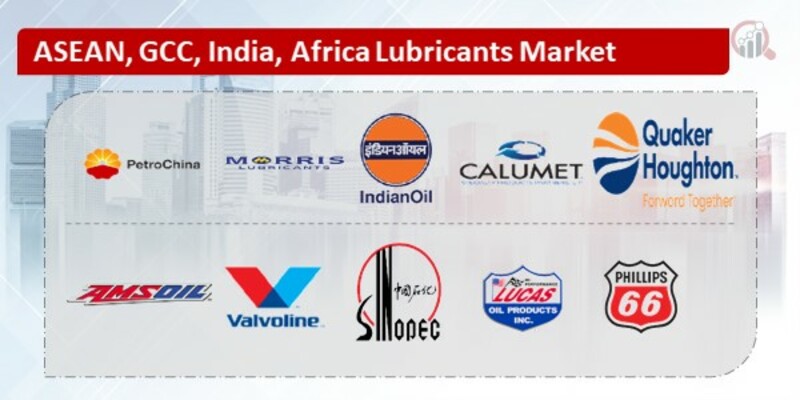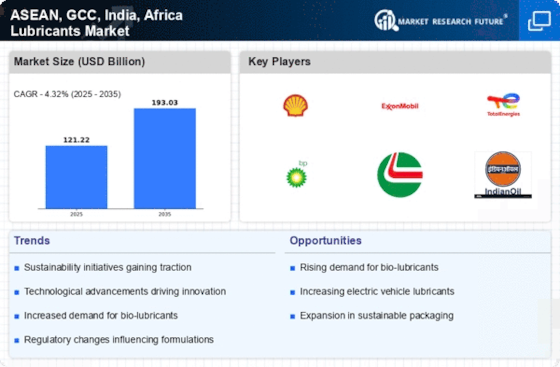Top Industry Leaders in the Global Lubricants Market

The lubricants market promises continued growth and evolution. Technological advancements, rising demand in emerging economies, and the shift towards sustainable solutions will shape the competitive landscape. Players who adapt to these trends and employ well-defined strategies stand to gain a significant edge in the race for market share.
Strategies in Play:
Innovation Drive:Leading companies like ExxonMobil, Shell, and BP are investing heavily in R&D, crafting high-performance lubricants tailor-made for specific applications. Bio-based and synthetic lubricants are gaining traction, while concerns about environmental impact push for greener formulations.
Brand Building:Market giants leverage their established reputations and robust marketing campaigns to cultivate customer loyalty. Sponsorships, partnerships with OEMs, and targeted digital marketing are tools wielded to build brand equity and preference.
Distribution Prowess:Building extensive, efficient distribution networks is crucial. From traditional channels like dealerships and retail stores to online platforms, securing diverse access points to customers remains a key differentiator.
M&A Maneuvers:Strategic acquisitions and mergers allow companies to expand their reach, acquire new technologies, and diversify their product portfolios. Recent examples include Shell's purchase of Jiffy Lube and ExxonMobil's acquisition of Nuvoil.
Cost Optimization:Streamlining operations, optimizing supply chains, and controlling production costs are vital for maintaining profitability in a competitive market. Automation and digitalization play a critical role in achieving cost efficiency.
Factors Shaping Market Share:
-
Region-Specific Growth: Emerging economies like China and India are witnessing a rise in demand for automotive and industrial lubricants, presenting lucrative opportunities for players who adapt their strategies to local needs. -
Technological Advancements: The development of longer-lasting and energy-efficient lubricants opens up new markets and attracts customers seeking cost savings and reduced environmental footprint. -
Sustainability Focus: The growing emphasis on environmental responsibility pushes companies to develop eco-friendly lubricants and adopt sustainable practices, creating new avenues for differentiation. -
Price Fluctuations: Base oil prices and geopolitical factors can cause significant price fluctuations, impacting profitability and requiring players to react strategically.
PetroChina Company Ltd., Morris Lubricants, Indian Oil Corporation Limited, Calumet Specialty Products Partners, L.P, Quaker Chemical Corporation, AMSOIL INC., Valvoline, Inc., Sinopec Corporation, Lucas Oil Products, Inc., Phillips 66 Company, Yushiro Chemical Industry, Chevron Corporation, BP Plc, Exxon Mobil Corporation, Lukoil, Petronas, Clariant, Fuchs Petrolub SE, Rock Valley Oil and Chemical Co., Gulf Oil India, Royal Dutch Shell Plc, Total S.A., and others are noteworthy players in the ASEAN, GCC, India, Africa lubricants market.
Market News
July 2023: ExxonMobil announces a partnership with Siemens to develop and deploy digital solutions for predictive maintenance in the industrial lubricants market.
August 2023: Shell launches a new line of bio-based lubricants for the marine industry, aiming to reduce carbon emissions from shipping.
September 2023: BP expands its manufacturing capacity in China to cater to the growing demand for high-performance lubricants in the region.









